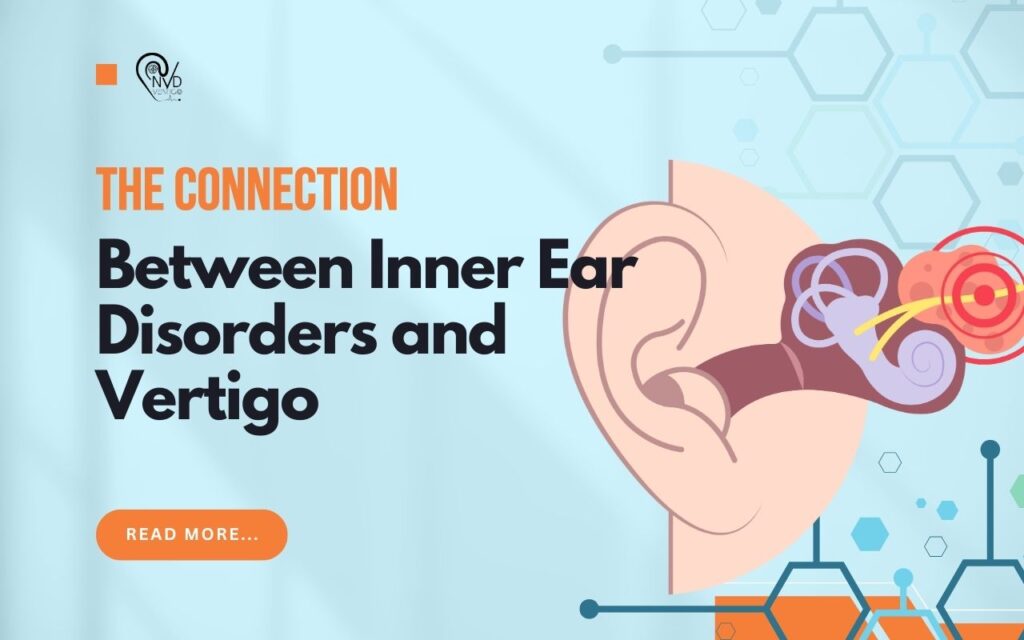Vertigo, often characterized by a sensation of spinning or dizziness, can significantly impact an individual’s quality of life. Among the various causes of vertigo, inner ear disorders play a crucial role. As the best vertigo doctor in Kolkata, Dr. Nilotpal Dutta emphasizes the importance of understanding this connection to provide effective treatment and relief for patients.
Understanding the Inner Ear
The inner ear, also known as the labyrinth, is a complex structure responsible for hearing and balance. It consists of two main parts: the cochlea and the vestibular system. The cochlea is involved in hearing, the vestibular system is crucial for maintaining balance and spatial orientation.
The vestibular system includes three semicircular canals and two otolithic organs (the utricle and saccule). These components work together to detect head movements and changes in position. When the vestibular system functions correctly, it sends signals to the brain about the body’s movements, helping to maintain balance and coordination.
How Inner Ear Disorders Cause Vertigo
Inner ear disorders can disrupt the normal functioning of the vestibular system, leading to vertigo. Some common inner ear conditions that cause vertigo include:
- Benign Paroxysmal Positional Vertigo (BPPV): BPPV is the most common cause of vertigo and occurs when tiny calcium crystals (otoconia) in the inner ear become dislodged and move into the semicircular canals. This movement causes the canals to send incorrect signals to the brain, resulting in a spinning sensation.
- Ménière’s Disease: This chronic condition involves abnormal fluid buildup in the inner ear, leading to episodes of vertigo, hearing loss, tinnitus (ringing in the ears), and a feeling of fullness in the ear. The exact cause of Ménière’s disease is unknown, but it may be related to genetic and environmental factors.
- Vestibular Neuritis: This condition is caused by vestibular nerve inflammation, due to a viral infection. Vestibular neuritis leads to sudden, severe vertigo, nausea, and difficulty with balance, often lasting for several days to weeks.
- Labyrinthitis: Similar to vestibular neuritis, labyrinthitis involves inflammation of both the vestibular nerve and the inner ear’s labyrinth. It is usually caused by a viral or bacterial infection and results in vertigo, hearing loss, and tinnitus.
- Perilymph Fistula: This rare condition occurs when there is a tear or defect between the middle and inner ear, allowing fluid to leak. It can cause vertigo, imbalance, and hearing loss, often triggered by changes in pressure, such as during air travel or physical exertion.
Diagnosis and Treatment
Dr. Nilotpal Dutta, recognized as the best vertigo doctor in Kolkata, employs a comprehensive approach to diagnose and treat inner ear disorders causing vertigo. The diagnostic process typically includes:
- Medical History and Physical Examination: A detailed medical history and physical examination help identify potential triggers and underlying conditions.
- Hearing Tests: Audiometric tests assess hearing function and detect any hearing loss associated with inner ear disorders.
- Balance Tests: Tests like videonystagmography (VNG) and electronystagmography (ENG) measure eye movements to evaluate the vestibular system’s function.
- Imaging Studies: MRI or CT scans may be used to rule out other causes of vertigo, such as tumors or structural abnormalities.
Treatment options vary based on the specific inner ear disorder and may include:
- Canalith Repositioning Maneuvers: For BPPV, maneuvers like the Epley maneuver help move the displaced crystals back to their correct position.
- Medications: Antihistamines, anti-nausea medications, and corticosteroids may be prescribed to manage symptoms of vertigo and inflammation.
- Vestibular Rehabilitation Therapy (VRT): Customized exercises and physical therapy can help improve balance and reduce dizziness by retraining the brain to compensate for the inner ear disorder.
- Lifestyle Modifications: Dietary changes, stress management, and avoiding triggers can help manage conditions like Ménière’s disease.
- Surgery: In severe cases, surgical interventions may be necessary to correct structural abnormalities or relieve fluid buildup.
Conclusion
Understanding the connection between inner ear disorders and vertigo is crucial for effective diagnosis and treatment. As the best vertigo doctor in Kolkata, Dr. Nilotpal Dutta provides expert care and personalized treatment plans to help patients regain their balance and improve their quality of life. If you or a loved one is experiencing vertigo, seeking professional help is essential for proper management and relief.




